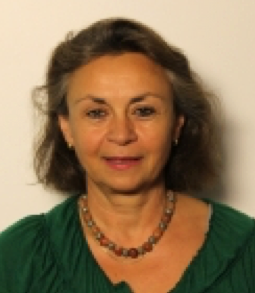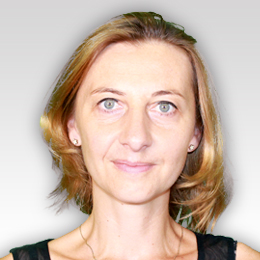
IMI Programme Office: Why was a project like Eu2P needed in the first place?
Annie Fourrier-Réglat: Pharmacoepidemiology (the study of the utilisation and risks and benefits of drugs in large numbers of people) and pharmacovigilance (drug safety surveillance) are fields that are quite new, especially pharmacoepidemiology. For a long time, people in regulatory agencies and in industry thought that as soon as a drug had market authorisation, the evaluation process was over. Post-licensing evaluation of the use and beneficial or adverse effects of a drug in the population at large are nowadays considered as mandatory. In this context, a national master degree was developed in 2004 by our department at the University of Bordeaux to train students and professionals in these fields. When IMI1 published a Call with the aim to develop education and training in this field on a European level, we decided to apply.
Karine Palin: At the time when we started, you could find some training in these fields in different European countries, but since we all use the same medicines in Europe, there was a real need to have a common curriculum, a common knowledge base. Thanks to the e-learning platform which we have developed within the project, Eu2P was able to fill this gap.
IMI Programme Office: Which Eu2P achievements are you most proud of?
Annie Fourrier-Réglat: We developed the first training fully dedicated to pharmacoepidemiology and pharmacovigilance at a European level. Secondly, thanks to the excellent work of the Eu2P team, we were able to develop an e-learning platform in a very short time. This online platform allows the delivery of a flexible and modular curriculum particularly meeting all on-the-job training needs of professionals. Another important achievement is that the students are not only coming from Europe, but also from the US, Asia and developing countries in Africa and south-east Asia.
Karine Palin: This is also in this field the first diploma like this in Europe that is recognised on an international level and awarded by several universities at the same time. It is what we call a joint master degree, which is not so common. We are very proud of that.

IMI Programme Office: How many people did you train so far?
Annie Fourrier-Réglat: More than 400 students have been enrolled in the master’s degree and postgraduate certificate courses and we have recorded more than 2 500 registrations in the short courses.
IMI Programme Office: How did the academic community benefit from this project?
Annie Fourrier-Réglat: The six European universities, part of Eu2P, jointly award the Eu2P diplomas which increase their reputation and recognition. Besides that, it was a good opportunity to implement research collaboration between these universities.
When we began to build the Eu2P e-learning platform curriculum and the joint master degree programme in 2009, the University of Bordeaux was grateful, considering the consistency with its strategy, to implement e-learning training. Eu2P became a model for developing other innovative e-learning projects such as www.FORMeDOC.org, which trains health professionals in the good practices of drug prescribing and use.
IMI Programme Office: And how did the industry benefit from this project?
Annie Fourrier-Réglat: They benefit from the programme, because their employees can now get an internationally recognised master’s degree, diploma or a certificate. Before that, they only had access to one-day or two-day trainings without academic recognition. Thanks to the e-learning platform, their employees can access it from anywhere, anytime. Another benefit is that these programmes, and short courses in particular, have been developed in cooperation with industry, so they are really tailored to their employees’ needs for continuous professional development and restricted time availability.
Karine Palin: Thanks to Eu2P, industry also became aware of the importance of life-long training and continuous professional development. Several pharma companies which were part of Eu2P now ask us for yearly trainings for a hundred employees or more.
IMI Programme Office: Do you think it would have been possible to achieve everything that was achieved without IMI?
Annie Fourrier-Réglat: No, definitely not. All this wouldn’t have been possible without the IMI funding and collaboration between the different partners in the public and private sectors. We could have probably built the platform on our own, but it would have taken a longer time.
IMI Programme Office: Now that the project officially ended, are the courses still on-going? Are these programmes now self-sustaining?
Annie Fourrier-Réglat: After the project ended in June 2016, we signed a memorandum of understanding with the universities which were part of the project and five private partners. So yes, we are continuing to offer the same programme, the same courses, which are regularly updated as the field evolves. We have even developed new short courses and would like to expand the training content to other areas such as vaccine safety in the future. The programmes are self-sustainable and are being funded through fees paid by companies and students.
